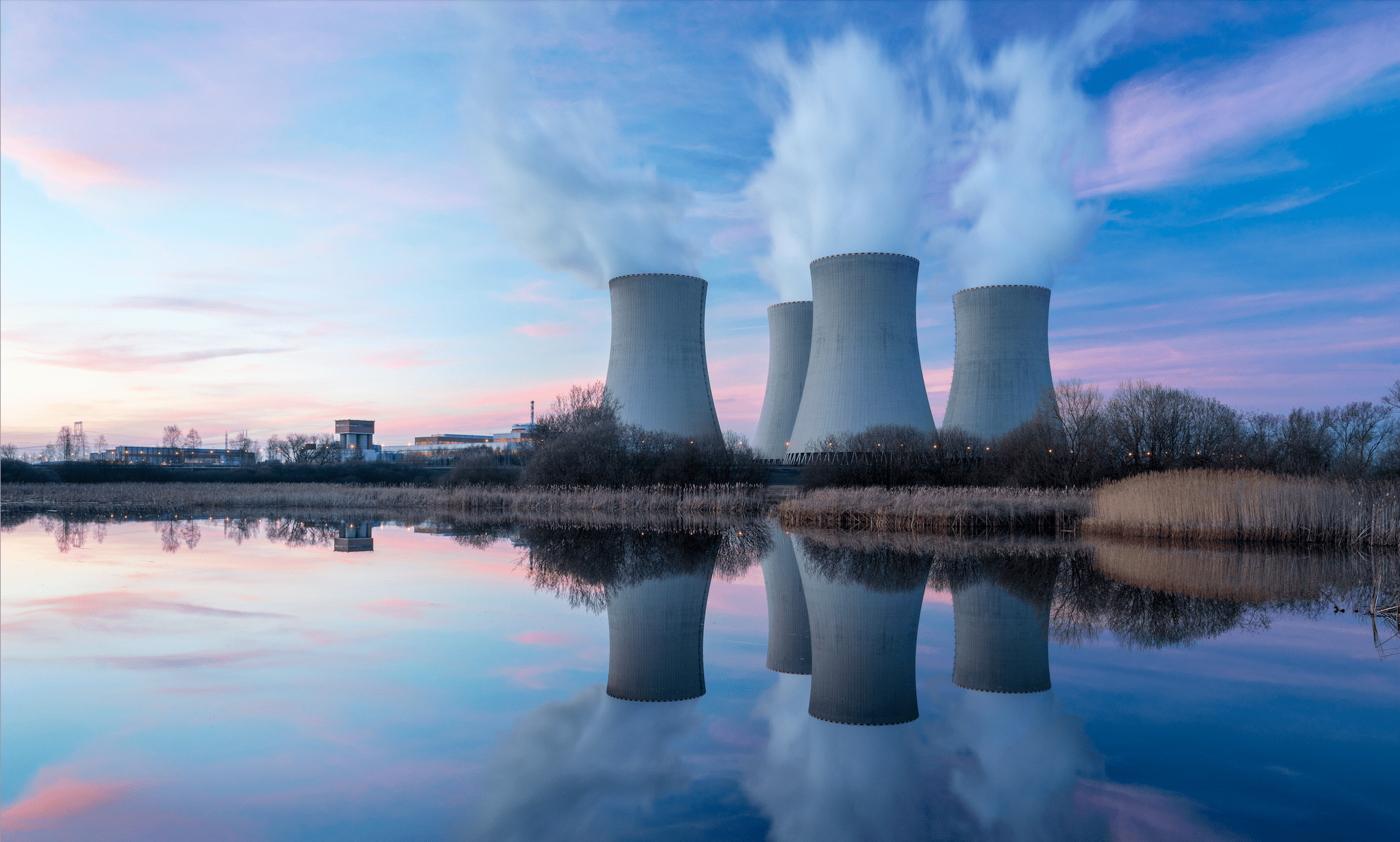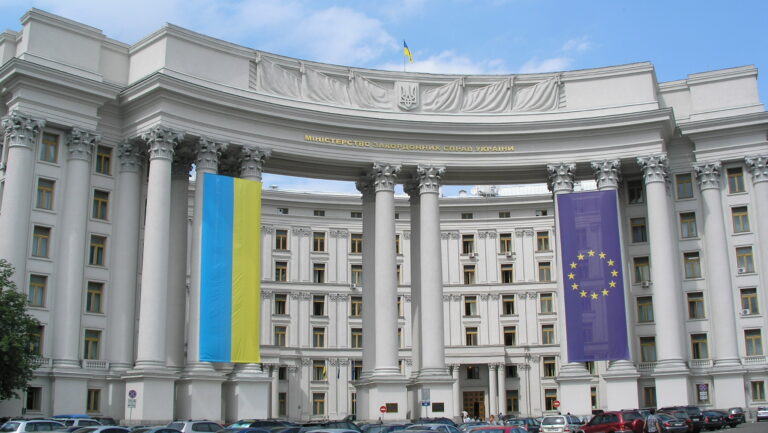One of the most important debates of our time is now bitterly raging over the industrial – economic use of nuclear energy. While the European Union—for the time being—seems to be insisting on the use of nuclear energy, in Germany, Europe’s leading economy, nuclear power plants are already being shut down under the new Green-Left government. But the battle between nuclear power and the far left actually goes back half a century, with demonstrations in the 1970s turning to brutal violence.
The European Commission’s new plan for the European Union to declare nuclear energy ‘sustainable and green’ caused a major backlash. The decision has provoked considerable controversy in the political sphere, as illustrated by the example of traditionally “green-friendly” and “anti-nuclear” Austria, where both the conservative ruling Freedom Party of Austria (Freiheitliche Partai Österreichs, FPÖ) and the opposition Social Democratic Party (Sozialdemokratische Partei Österreichs, SPÖ) have described the plan as a ‘wrong track’ or ‘backward step’, and Austria may protest against the Commission’s plans.[1] Polls show that two-thirds of Austrians have a negative view of the role of nuclear energy, and—as a result of the 1978 referendum—Austria currently has only one nuclear power plant, that is not in operation.
But the decision is causing tensions not only in Austria, but also in other European countries, including Germany, where in just over a year of the new Green-Left government, a total of six nuclear power plants—the last six—will be shut down (so far three, Brokdorf, Grohnde, Gundremmingen, were shut down in December 2021). The new environment minister Steffi Lemke (Green Party) said the ‘nuclear power would make our energy supply neither safer nor cheaper. A technology that has no solution for the disposal of toxic waste cannot be sustainable’.[2] According to the German justification, Germany has already based only 11 per cent of its own energy economy on nuclear power —a unique situation in the world—and any shortfall can be made up by importing energy. Another problem for nuclear power plants, according to Lemke, is the storage of nuclear waste, which carries considerable risks for future generations.
However, a closer look at the issue might give the impression that the tension between nuclear energy and the Green-Left parties is not in fact merely due to the technological disadvantages of nuclear power plants, but is also strongly ideological.
Nostalgic Green Idealism Versus Realistic Climate Policy
The Washington Post‘s analysis[3] pointed out that Germany’s decision—in contrast to France, which President Macron has decided to rely explicitly on nuclear energy in the future—could prove to be a serious mistake in the long run, as German policy is not only to reduce nuclear power, but also to reduce coal-fired power plants in order to cut carbon emissions. This, in turn, means that the country’s economy will depend on energy imports, making it difficult, for example, to do without Russian gas supplies, and this dependency could have political consequences.
Nuclear energy is still dangerous and that there have been “nuclear” accidents in every decade since the 1940s
Another important aspect is the question of technology: the German weekly left-wing magazine Der Spiegel[4], among others, argued that nuclear energy—despite new technological experiments—is still dangerous and that there have been “nuclear” accidents in every decade since the 1940s. Moreover, if a nuclear disaster occurs, it could have consequences for a whole continent, and the new Small Module Reactors (SMR) models promoted by President Joe Biden will not help because of their large number (more reactors, more risks – the principle). The issue of nuclear waste remains unresolved and its transport and storage could become even more opaque.
But the debate on new nuclear technologies is actually more complex than that since some experts argue that technological progress could pave the way for the present era to be the real beginning of nuclear technology rather than the end. The reality is that all US nuclear reactors have so far produced enough nuclear waste to fit into a container the size of a football field, which is two-storey high. (Of course, nuclear waste management should become more efficient in the future.) Many countries besides the US and France are planning and building nuclear power plants, including Russia and China, which are building new technology-based plants. This is also due to the fact that experts are expecting an even stronger penetration of electrical engineering (e.g., in the automotive industry) and thus an increase in energy demand.
It is no coincidence that analyses in the Neue Zürcher Zeitung[5][6], for example, point to a weakening of opposition to nuclear power even within Germany. The anti-nuclear course of green politics is in fact based on idealism, while the European Commission’s decision to allow new types of nuclear power plants to be sited in Europe is more a move towards pragmatism than ideology. It would have strengthened the credibility of the Green-Left government if it had opted for a climate policy based on realism instead of a ‘nostalgic battle of symbols’.
Radical Reconstruction of Society
The ideological character of the green advance was also pointed out a few years ago by Michael Shellenberger in an article[7] for Forbes: ‘The problem with nuclear is that it doesn’t demand the radical re-making of society, like renewables do, and it doesn’t require grand fantasies of humankind harmonizing with nature.’ Shellenberger cited France as an example, which tried to follow Germany in adopting renewables, but spent $30 billion on the experiment, yet electricity costs rose and carbon emissions from power generation increased.
While it would seem that a certain technological breakthrough—not just ‘on paper’, but now in practice—is indeed important, it is true that the fight against nuclear power was already on the agenda of the far left in the 1970s as part of the fight against capitalist-capitalist society. In some cases, such as in Munich, anti-nuclear demonstrations have been attended by 50,000–100,000 people. The most serious incidents took place during the demonstrations against the nuclear power plant in Brokdorf, where the media, such as Der Spiegel, reported a ‘civil war situation’. Left-wing anarchist demonstrators threw paving stones, steel balls and Molotov cocktails at police, and the situation became so wild that the use of firearms was even considered. Hundreds of demonstrators and police officers were injured, some of them seriously.
The anti-nuclear movement in France also gained momentum half a century ago, with tens of thousands of French citizens taking part in demonstrations in the mid-1970s. The most serious incident occurred not specifically in connection with nuclear power plants, but with nuclear weapon tests: in 1985, the Greenpeace ship Rainbow Warrior protested against French nuclear testing. In response, French intelligence sent torpedoes into the hull, which sank after the explosions.
[1] Ivo Mijnssen, ‘Österreichst ABlehnung der Atomkraft geht quer durch alle Lager’, Neue Zürcher Zeitung, (2022), https://www.nzz.ch/international/atomkraft-in-der-eu-oesterreichs-widerstand-gegen-greenwashing-ld.1663091?mktcid=smch&mktcval=fbpost_2022-01-04&fbclid=IwAR0X5_X-MNrmKQ_kVf0wwg4rsI_hisef9uQ-kfmuy6777o8ErB2Y3AbEl88, accessed 05. Jan. 2022.
[2] Bundesumweltministerium, Twitter, (2021), https://twitter.com/BMUV/status/1473664159027974144, accessed 04. Jan. 2022.
[3] NA, ‘German is closing its last nuclear plants. What a mistake’, Washington Post (2022), https://www.washingtonpost.com/opinions/2022/01/01/germany-is-closing-its-last-nuclear-plants-what-disaster/, accessed 04. Jan. 2022.
[4] Viola Kiel, ‘Atomkraft? Nein, danke, wirklich nicht’, Der Spiegel (2021), https://www.spiegel.de/wissenschaft/mensch/spiegel-klimabericht-kernkraft-ist-keine-loesung-in-der-klimakrise-warnen-wissenschaftler-a-4c4132a4-b2f4-4c36-ba98-2bf6704c8cb7, accessed 03. Jan. 2022.
[5] Alexander Kissler, ‘Berins radikaler Anti-Atom-Kurs bleibt ein Sonderweg’, Neue Zürcher Zeitung, 2022., https://www.nzz.ch/meinung/der-andere-blick/berlins-radikaler-anti-atom-kurs-bleibt-ein-sonderweg-ld.1662951, accessed 04. Jan. 2022.
[6] Peter Rásonyi, ‘Mehr europäische Atomkraftwerke täten dem Klima gut – wenn sie den wirklich kämen’, Neue Zürcher Zeitung, 2022, https://www.nzz.ch/meinung/eu-taxonomie-mehr-atomkraftwerke-taeten-dem-klima-gut-ld.1662942?mktcid=smch&mktcval=fbpost_2022-01-04&fbclid=IwAR3_Y9WnMVFKB8QhPhuIe0Roa6A9yh8FAfk32Xxy1FLfgkGr7GqBn6O3Tc8, accessed 03. Jan. 2022.
[7] Michael Shellenberger, ‘The Real Reason They Hate Nuclear Is Because It Means We Don’t Need Renewables’, Forbes 14 February 2019, https://www.forbes.com/sites/michaelshellenberger/2019/02/14/the-real-reason-they-hate-nuclear-is-because-it-means-we-dont-need-renewables/?sh=62ca01c7128f, accessed 03. Jan. 2022.








